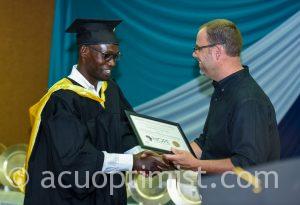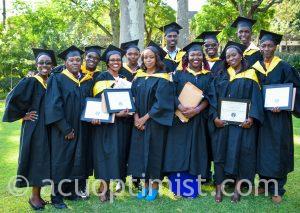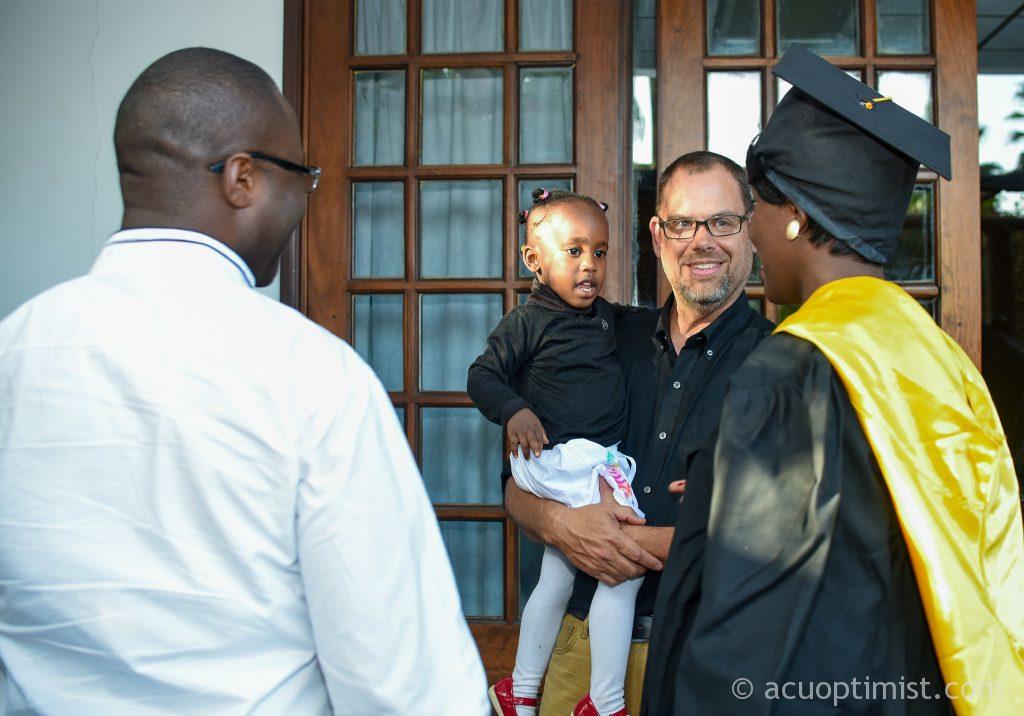In a country over 8,800 miles away filled with over 3 million residents, one online school is inching its way into the buzzing and chaotic lifestyle of Nairobi, Kenya. With the name of Christ stamped alongside his valiant efforts, one man’s heart for Kenya is reaching new levels of hope.
 Darren Wilson, coordinator of the Maker Lab, is the founder of HOPE School of leadership, a tuition free, two-year online Christian university for African men and women seeking a higher level of education.
Darren Wilson, coordinator of the Maker Lab, is the founder of HOPE School of leadership, a tuition free, two-year online Christian university for African men and women seeking a higher level of education.
Known for being the friendly face who faintly waves when students enter the Maker Lab, Wilson said he first found out about Made In The Streets ministry, a nonprofit organization seeking to remove children from a life on the streets toward a high school diplomacy, when Californians Charles and Darlene Coulston visited his church in Irving. Though Wilson was only a high technology school teacher at the time, he knew he wanted to be a part of their endeavor.
After meeting with various members of Made On The Streets Ministries, Wilson began brainstorming some ideas for a continuing higher education school for students and professionals wishing to gain more insight and knowledge about scripture and leadership skills.
“At the time, there wasn’t any infrastructure for a school for what we wanted, but we kept talking about it. And then, they got the internet,” Wilson said. “Sure, it didn’t work that fast or that great, but still it was working and people started getting phones with internet, and we started thinking about delivering content.”
And in 2008, his love for Kenya began to bloom.
Over the next couple of years, Wilson began writing courses on Canvas with the intent of launching in 2014. Wanting to provide more opportunities for students graduating from Made On The Streets, Darren, along with other partners, designed HOPE School to give a unique experience to students who wanted to continue learning more than just a skill.
“Most of the kids are super bright and very hard-working,” Wilson said. “They don’t want to stop school with a high school equivalency. So, we made HOPE school to continue their education regardless of where they were in town because Nairobi is like two Dallas/Fort Worth’s put together. It’s a mess. So, you can’t easily go to college, and it made sense to do it 100 percent online.”
Within the course, students will undergo twelve individual courses ranging from scripture, social sciences, networking skills and leadership skills based on Christian interpretation. Whether it be learning how to negotiate for better pay or how Jesus led those who didn’t believe in Him, students are reaching different aspects of their potential – not just a physical skill.
Though the school seems to doing great, Wilson said the first 22 students were people he knew personally. Whether they were recent graduates of Made On The Street or professionals he had encountered throughout his visits, Wilson was able to rile up some of HOPE School’s next leaders and coordinators.
“We just approached them and said ‘Hey, we’ve got this school, and we want you to be the first class,’ ” Wilson said. “And they said ‘Yes,’ and by the time they graduated, they had already told a whole bunch of their friends, and they told their friends, and they told their friends. We’re definitely not over or under filling the classes.”
However, this effort didn’t come without a heavy cost. Wilson said the school had several pitfalls and minor mistakes along the way, including not being accredited by the government and giving out free items like tablets without fully thinking through the consequences.
“We decided to give out tablets for the first class, and at that time, we bought some really cheap ones for like one hundred bucks. You know like Android ones,” Wilson said. “And like six months later, the tablets were either stolen or broken. That’s why we decided to move toward them just using their phones. We didn’t really think about that until then, but we use our phones for everything now so it worked.”
Today, students predominantly use their phones as their classroom, which continues to innovate and bring the Kenyaian’s closer into the technology-savvy era.
 Already on its fourth graduating class, the buzz behind HOPE School is catching on. Whether it be Kenyan friends of Wilson or friends of previous graduates, HOPE School is allowing Kenyans to follow and believe in other Kenyans.
Already on its fourth graduating class, the buzz behind HOPE School is catching on. Whether it be Kenyan friends of Wilson or friends of previous graduates, HOPE School is allowing Kenyans to follow and believe in other Kenyans.
With leaders like native Kenyans Paul Oduor and Catherine Njambi, Wilson said it’s important for Kenyans to see other Kenyans run these types of institutions to avoid the “white savior” concept.
“At some point, I want to hand everything over to Paul and our staff in Kenya and have it completely run in Kenya,” Wilson said. “I think the problem is with Americans going to places in Africa like Kenya and only painting a fence or something like that. They already have people who can paint fences. What we want is to have Kenyans work with other Kenyans. Like, when we gave out free tablets, we were feeding into the ‘white savior’ concept. Now, we only provide an education, and it’s an education they can get in Kenya.”
By removing the flair and flamboyance of American entrepreneurship and nonprofit stench, Wilson is putting his leaders to the test and giving them the necessary responsibilities to run the school within the next two years.
“Last year, I quit grading assignments and gave the task to other staff members because I didn’t want them to think that they’re working for me – the white guy,” Wilson said. “So, I’ve been putting the training wheels on them and have given them some of the reins on the operations.”
Wilson said he hopes to see the school move to other countries in Africa and other parts of the world where English is spoken and understood.
“We want to branch out and go to other countries like Cape Town where people could study with us and don’t have to be in Kenya,” Wilson said. “We want to get to the point where we can have someone in South America want to study, and we can say ‘Sure. Let’s get you signed up.’ ”
Until then, Wilson’s passion for HOPE School is inspirational. From the moment he explains HOPE’s efforts to the last picture he scrolls through showing you all of the students with their black and gold gowns, HOPE School is not only bringing new hope found to Kenya, but also to Wilson.
“They named it HOPE because that’s what they have. They think hope is what they have. Hope is what Jesus gives them, and hope is what school gives them,” Wilson said.
And after his last scroll on last years graduating class pictures, Wilson returns to man his desk with pieces of copper wire, computer parts and mark-up’s along the edges of the Maker Lab room.

